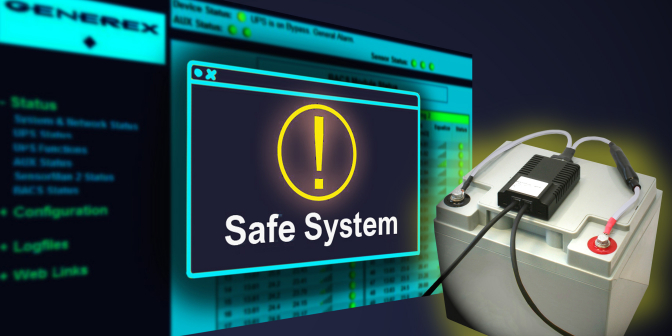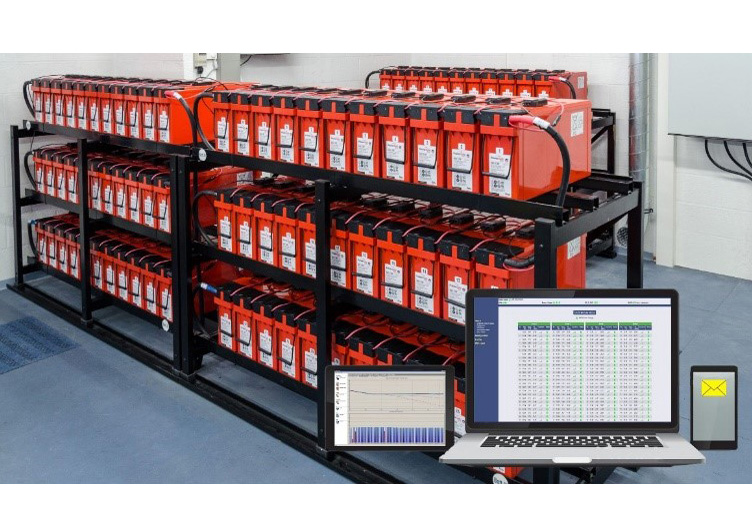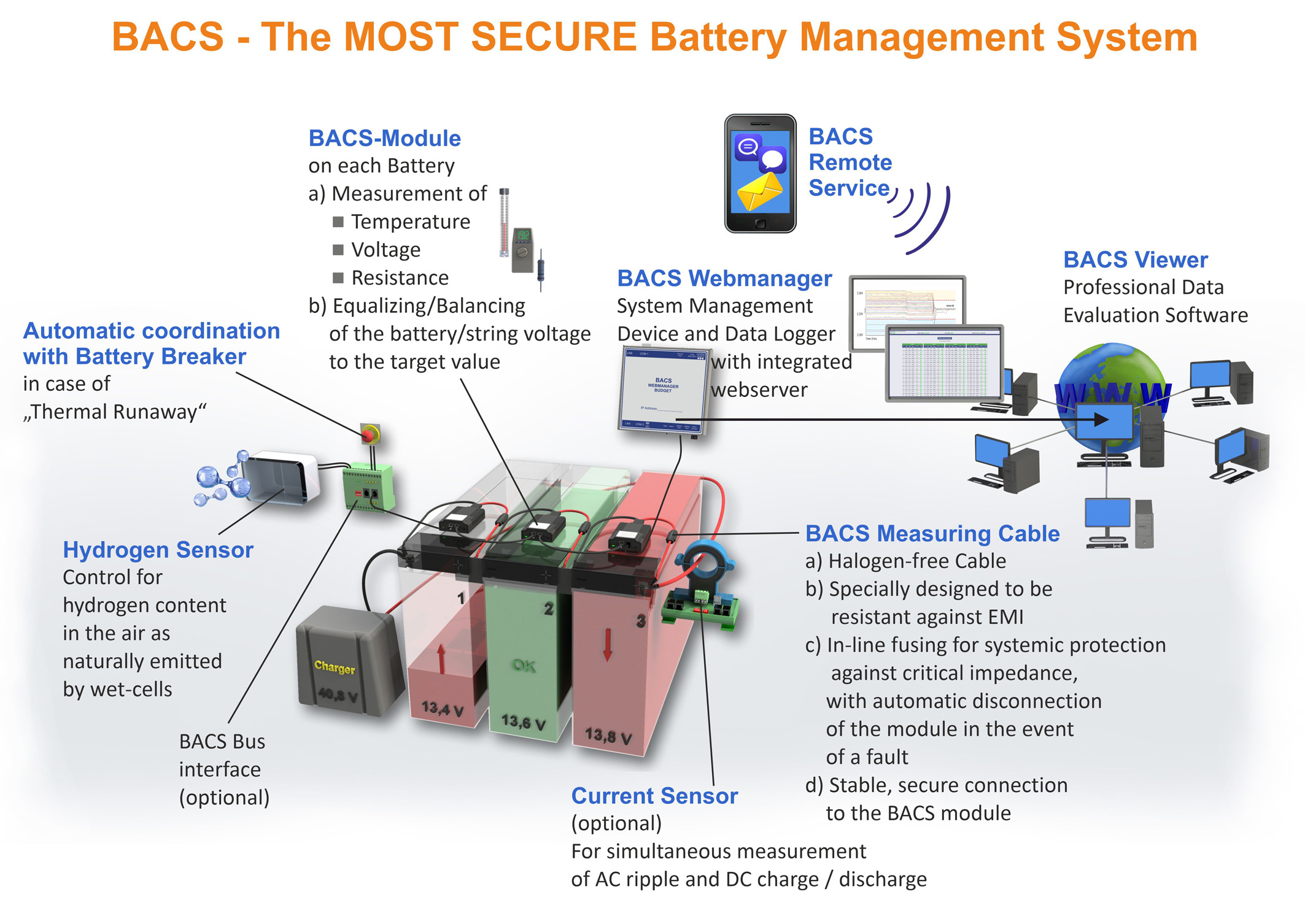One of the key topics of the future is the guaranteed supply of power to established and developing IT infrastructures, and closely related is the availability of secure emergency power and the trusted competence of its application.
Due to this need, the demand for "BMS" systems has experienced a massive increase. In most cases the user is offered a "Battery Monitoring System", although they are looking for a full "Battery Management System", which is required, for example, in lithium battery systems.
The prospective buyer is often unaware of the difference between these two system variants and as such might be misled into purchasing a product which does not fulfill the tasks set to it! This disappointed expectation has led to battery monitoring being seen as a luxury over the last 30 years, when in fact customers were looking for battery management to relieve them and automate their monitoring tasks. With BACS, the game changed - in recent years in Germany, Austria, Switzerland, Sweden and Norway our BACS system has established itself as a “true” Battery Management System, often as a replacement to these aforementioned standard battery monitoring systems.
We are proud to inform our customers that BACS has over 60% of the BMS market share in the countries listed above.
Especially in German-speaking Europe, we have used our "home advantage" and are the absolute market leader - albeit in a niche market that is growing every year. Other countries have also noted the advantage of Battery Management over simple monitoring and they are retooling their battery infrastructure accordingly.
Simple battery monitoring provides a focused but inactive feed of data which informs the user but does not itself prevent damage to the batteries; as such it is essentially a "luxury" service, ineffective and unnecessary. The user pays a premium only to more clearly watch their batteries “die”.



